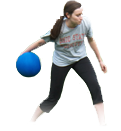
Sitting down at work “increases risks of cancer”
It’s not enough for us to know that we should be exercising to tone our bodies and improve our health. It seems we need specific strategies to help us start an exercise program – and keep it going. Finding the personal motivation to sustain a fitness program can be difficult for most people. You start with great intentions but find it difficult to sustain the effort. So if you are a beginner or want to avoid being a drop out, here are some tips to help you get started and keep you going.
Make the time. It might seem like you don’t have enough time in your day for exercise, but you probably do – you just have to make it a priority. Here are some ways to do it.
Set an appointment. Pick out the times when you want to exercise, and schedule ahead. Keep your appointment with yourself ironclad, and don’t let other engagements interfere. If you keep a calendar on your phone or computer, set alarms that will remind you of your workout time.
Replace a habit. Most of us have some unnecessary and not particularly enjoyable habit, such as watching TV, that could be replaced by (or added on to) exercising. Ask yourself how much time you spend on this habit, and whether or not you could exercise at the same time. If the answer is yes, make a new rule that stipulates (for instance) that you can onlywatch television if you’re exercising at the same time.
Use it as social time. If you have a standing appointment with a friend or family member to spend time together, see if he or she is willing to incorporate exercise into that time. Instead of doing step aerobics together, though, consider doing a more social activity, like playing a game such as tennis or dancing.
Routine is the key. After about 2 weeks of the routine, you will find it a lot less of a chore.
Find an activity you enjoy. If you like exercising, you’re more likely to stick with it. Not all workouts are at a gym: try biking, inline skating, rowing, skateboarding, swimming, hockey, or a rugby team; even dancing in your bedroom with an iPod. Enjoyment is the key to sticking with it.
If you get bored while you exercise, try participating in a more social activity such as a team or intramural sport.
Get Back to Basics. Don’t think you need fancy equipment to get a great workout. The basic equipment like medicine balls, free weights, Swiss balls, and kettle bells along with traditional exercises such as squats, lunges, push ups and pull ups with give you the most bang for your buck.
Use Multiple Muscle Groups. When you work more than one muscle group at a time and use full-body movement as much as possible, it takes less time to do a thorough weight-training workout. For example, try doing squats (lower body) combined with dumbbell shoulder presses (upper body). Using full-body movements burns tons of calories in a short amount of time. Utilizing the services of a personal trainer can be a great investment. ADAC certified personal trainers can provide you the direction and motivation to insure you get the most out of your training program.
Stay accountable. Keep track of when you exercise and for how long. Make notes in your calendar, or keep an exercise journal. Writing down what you actually do will keep you accountable and show you how hard you’re actually working. Additionally, looking back and seeing how much you’ve done can create an inspiring sense of accomplishment.
Start with reasonable goals. Don’t set out to start a rigorous regimen right from the beginning. Instead, start exercising at a reasonable pace and increase as soon as you stop feeling challenged. Try 30 minutes, three times a week and see how you feel.
Avoid burnout. Working yourself too hard at first can lead to muscle strain and fatigue, and associating exercise with pain can make you more reluctant to work out next time.
Track your measurements. Instead of keeping track of your exercise success by how much weight you lose, try keeping a soft tape measure handy and measuring your waist and hip size. You might build muscle and gain weight, but you’ll lose inches.
Write down your measurements. As you start to trim up, seeing your progress can increase your confidence.
Learn. If you are shooting to lose weight, you must learn to eat healthily. Don’t “fall into” a diet. You would “fall out” eventually. Things like weight watchers can help you learn, but I simply recommend developing a lifestyle you will want to keep, and using your common sense. See tips for more help.
Find a Buddy, a Class, or a Group. “Humans desire companionship,” says Gutch. When someone is depending on you and striving for the same goals, this helps motivate you. Not only that, it just makes exercise more fun. ADAC offers over 40 free group fitness classes per week or if you would like something more structured try our fitCAMP boot camp style training program.
Drink water! Drinking water is absolutely the best thing you can do for your body. Always bring water to your workout sessions. Remember not to drink excessive amounts of plain water after strenuous workouts – your body loses salts through sweat, and too much plain water can help to flush out whatever is left. Sports drinks can be helpful for intense workouts, but consider the sugar content if your goal is to lose weight.
Drink enough water to replace what is lost. Amount will vary based on your body weight, climate, effort level, etc. Dehydration would slow your weight-loss goals, increase danger of muscle tears, and could make you feel nauseated. Avoid coffee and soda drinks, for better results.
Stay motivated. As you keep working out and building up your strength, your workouts will probably become easier. Don’t allow yourself to get complacent, though – as soon as your current regimen feels easy, change it up and try something different.
Tips
Play up-beat music to keep the pace and motivate yourself.
Don’t worry if you’re not seeing quick results. It normally takes about 8 weeks for results to really kick in visually. Remember, you can’t do it all in one sitting. Regular effort, with enthusiasm, is the key!
Go early to bed, and have plenty of rest on days you exercise. Muscles grow and repair themselves during the -deep- sleep.
Don’t have enough time for a good workout? Take a walk during your lunch break, do crunches and jumping jacks while watching TV, or pace while talking on the phone… In other words, take every opportunity to exercise.
Every day, make note of all the benefits you can perceive: increased energy, pride and so forth. Make it as long as you can and keep looking for new items.
Try NOT to exercise in the evening. If you exercise before going to bed, your metabolism is increased, endorphins are released and it will make it much more difficult to fall asleep naturally. If the only time you can exercise is in the evening, try to do it as early as possible before going to bed to allow your body to rest.
Consider alternative forms of exercise. Biking, indoor climbing, Yoga, Thai-chi, martial arts, etc., will all challenge your muscles in different ways, and provide some fun and variety.
Burn more calories playing than what you get from foods. Counting may help at first, but with regular exercises and 5-6 scheduled meals you will easily stay on track. Regular and moderate meals will keep the “fire” burning!
If you’re not used to exercising, it will be hard for the first week or so, to keep yourself from using an elevator. Keep walking and, soon you’ll find that you can easily climb those flights of stairs without getting out of breath.
Warnings
If you feel faint, dizzy, sick, or in pain while working out, take a break. If you start getting better soon, then just start once you feel better. If there is a serious pain or you’re crying, you think something is broken, or it won’t go away, stop and wait a few hours. If it’s still not gone, call a doctor! (This originally said to wait a few days before contacting a doctor. If you are in pain that does not lessen for more than an hour, you should contact someone. If you are in severe pain, contact someone immediately as it could be a sign of something seriously wrong.)
Consult your doctor if you are severely underweight, overweight, obese, or suffer from asthma before starting working out as you could hurt yourself.
Consult your doctor before starting any new workout regimen, especially if you’ve had heart or lung related illness in the past.




